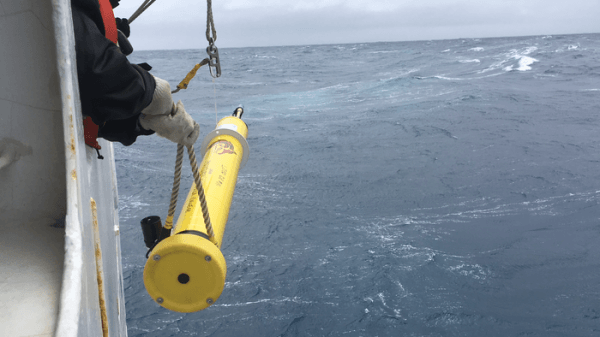The Antarctic Circumpolar Current (ACC), the only ocean current that circumnavigates the planet, is speeding up. For the first time, scientists are able to tell that this is happening by taking advantage of a decades-long set of observational records.
Researchers from Scripps Institution of Oceanography at UC San Diego, Woods Hole Oceanographic Institution, the Chinese Academy of Sciences, and UC Riverside used satellite measurements of sea-surface height and data collected by the global network of ocean floats called Argo to detect a trend in Southern Ocean upper layer velocity that had been hidden to scientists until now.
The team representing the National Science Foundation-funded Southern Ocean Carbon and Climate Observations and Modeling (SOCCOM) project reports its findings in the Nov. 29 issue of the journal Nature Climate Change.
Prevailing westerly winds have sped up as climate warms. Models show that the wind speedup does not change the ocean currents much. Rather, it energizes ocean eddies, which are circular movements of water running counter to main cuurents.
“From both observations and models, we find that the ocean heat change is causing the significant ocean current acceleration detected during recent decades,” said Jia-Rui Shi, formerly a PhD student at Scripps Oceanography and currently a postdoctoral researcher at Woods Hole Oceanographic Institution.
Read more at: University of California - San Diego
Researchers release an Argo float into the Southern Ocean (Photo Credit: Isa Rosso/SOCCOM)


